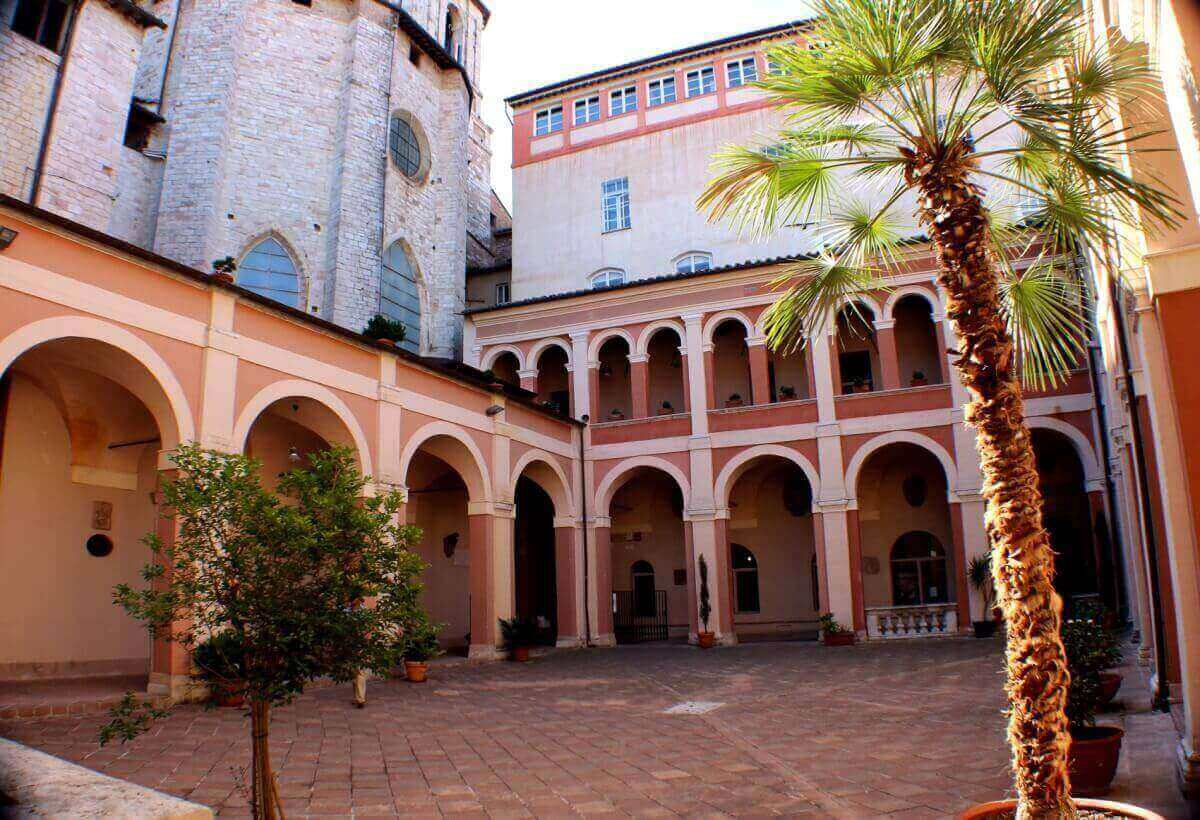“Luna, trova il tartufo (Luna, find the the truffle)!” called Matteo Bartolini after his dog as she scrambled down the muddy bank.
Picking their way carefully over the uneven ground, Umbra Institute Food Studies Program students followed Bartolini – and the truffle-hunting Luna – as the farmer showed the class around the woods and meadows of his farm, nestled in the Tiber River Valley in northern Umbria, last Friday.
As Luna sniffed out truffle after truffle, Bartolini demonstrated how he used a medieval-looking shovel to carefully dig the fungus from the ground. When Luna found the rare white truffle, she was rewarded with cubes of Parmesan cheese.
“We think of truffles as elite food,” said Bartolini, as he scrubbed a truffle with a toothbrush after the tour. “But it was the hungry farmer who first tried the food on his pasta centuries ago.”
Thirty-six-year-old Bartolini is not only a truffle hunter and farmer but one of Italy’s representatives to the European Union agricultural committee in Brussels. Umbra Institute Professor Zach Nowak deemed Bartolini’s tour ideal for the course he is teaching through the institute’s Food Studies Program (FSP) this spring.
“The field trip was a great opportunity to reinforce themes we've talked about in the classroom: foraging for wild foods as an integral part of the Italian diet, as well as the rural economy,” Nowak said after the class enjoyed a four-course meal with dishes like pork cutlets and a rich pasta dish, all cooked with the same truffles found earlier that day.
His students agreed.
"It is interesting to see how the food industry is more than just restaurants and grocery stores but also agriculture," said Meghan Baraw.
"Watching the dogs dig around for truffles and get excited when they found something was awesome," added Caitlin Smith. "It was such a hands-on experience: I feel like I got a real piece of Italian culture."
Nowak’s course, “The History and Politics of Food in Italy,” fulfills the Umbra FSP’s goal to encourage students to think about the basic questions of what we put in our mouths. Where does the food come from? Is it important that it be “local” or “organic?” What do the labels really mean?
These questions are fundamental to life in our globalized world, Nowak explained.
One bus ride later, the students were back at the Umbra Institute.


